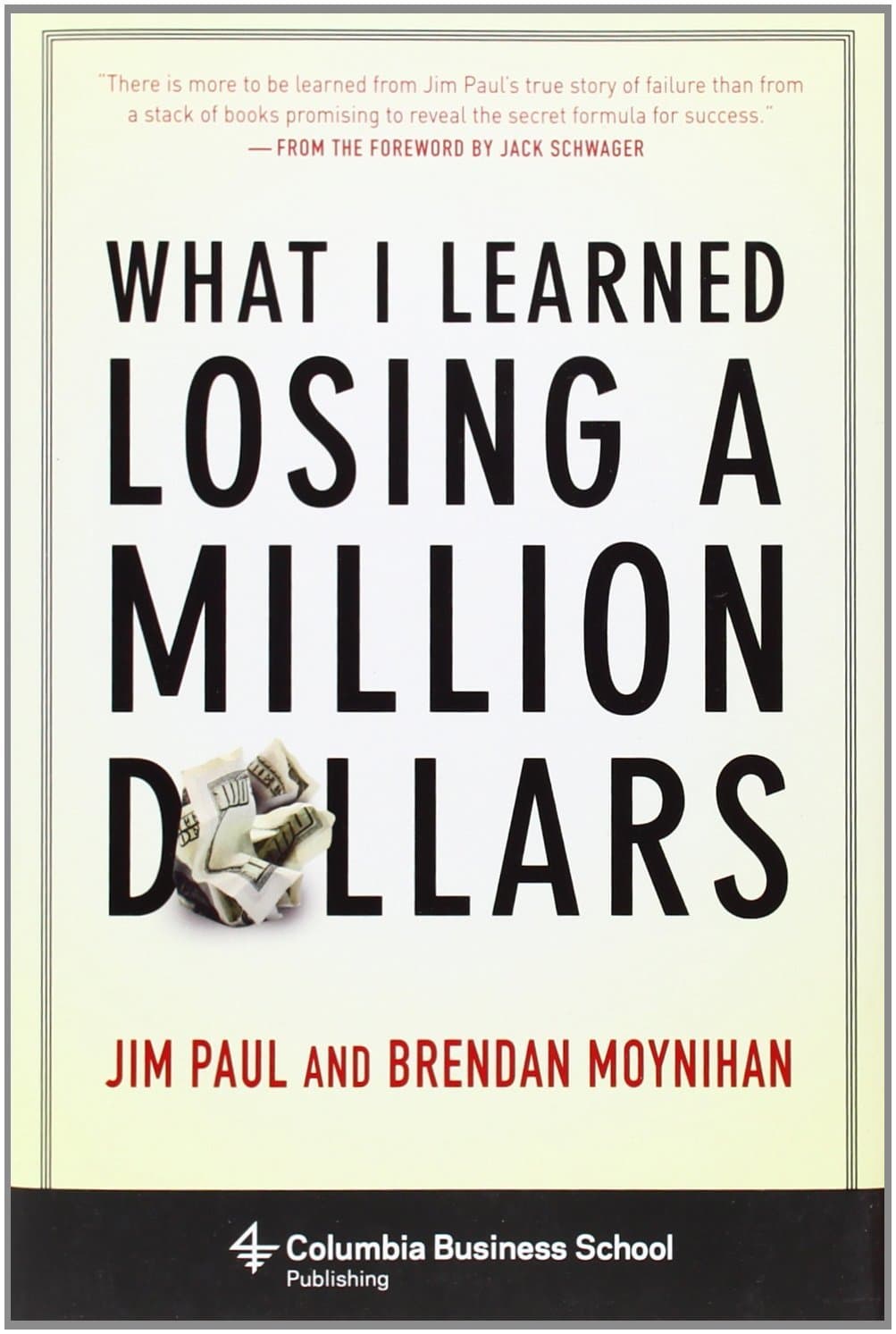
What I Learned Losing a Million Dollars
By: Jim Paul
Category: Finance
Finished:
Highlights
“Personalizing successes sets people up for disastrous failure. They begin to treat the success as a personal reflection rather than the result of capitalizing on a good opportunity, being at the right place at the right time, or even being just plain lucky.”
“That taught me that there are people for places, places for people. You can do some things and you can’t do other things. Don’t get all upset about the things you can’t do. If you can’t do something, pay someone else who can and don’t worry about it.”
“However, all losses can be categorized either as (1) internal, such as self-control, esteem, love, your mind, or (2) external, such as a bet, a game or contest, money.”
Six Psychological Fallacies:
- The first psychological fallacy is the tendency to overvalue wagers involving a low probability of a high gain and to undervalue wagers involving a relatively high probability of low gain. The best examples are the favorites and the long shots at racetracks.
- The second is a tendency to interpret the probability of successive independent events as additive rather than multiplicative. In other words, people view the chance of throwing a given number on a die to be twice as large with two throws as it is with a single throw— like throwing sixes four times in a row in craps and thinking that must mean their chances of throwing a seven next have improved.
- The third is the belief that after a run of successes, a failure is mathematically inevitable, and vice versa. This is known as the Monte Carlo fallacy. A person can throw double sixes in craps ten times in a row and not violate any laws of probability because each of the throws is independent of all others.
- Fourth is the perception that the psychological probability of the occurrence of an event exceeds the mathematical probability if the event is favorable and vice versa. For example, the probability of success of drawing the winning ticket in the lottery and the probability of being killed by lightning may both be one in 10,000, yet from a personal viewpoint, buying the winning lottery ticket is considered much more probable than getting hit by lightning.
- Fifth is people’s tendency to overestimate the frequency of the occurrence of infrequent events and to underestimate that of comparatively frequent ones after observing a series of randomly generated events of different kinds with an interest in the frequency with which each kind of event occurs. Thus, they remember the “streaks” in a long series of wins and losses and tend to minimize the number of short-term runs.
- Sixth is people’s tendency to confuse the occurrence of “unusual” events with the occurrence of low-probability events. For example, the remarkable feature of a bridge hand of thirteen spades is its apparent regularity, not its rarity (all hands are equally probable). As another example, if one holds a number close to the winning number in a lottery, he tends to feel that a terrible bad stroke of misfortune has caused him just to miss the prize.
Decision Making:
- “If the opportunity-defining criteria aren’t met, you don’t act.”
- “The next step in decision making is establishing controls, i.e., the exit criteria that will take you out of the market either at a profit or loss.”
- ““The first step in planning is to ask of any activity, any product, any process or market, ‘If we were not committed to it today, would we go into it?’ If the answer is no, one says, ‘How can we get out— fast?’”
- “The only way to combat falling into the opinion trap is to follow Rand’s lead: think before you answer— if you even answer.”

